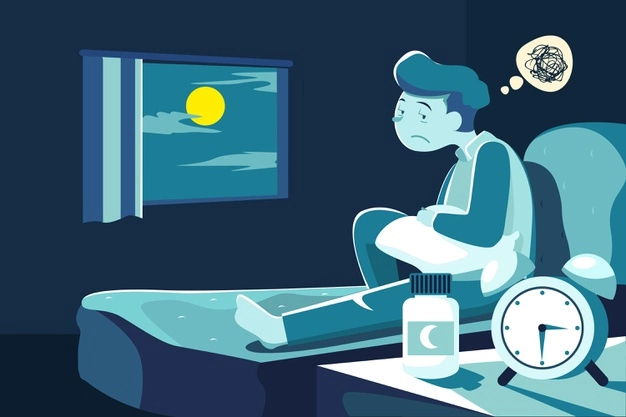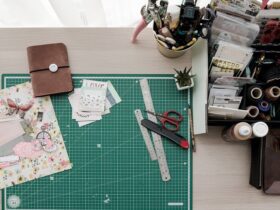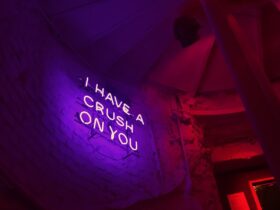Do you have trouble sleeping? As a result of the coronavirus, millions more people have difficulties sleeping, leading renowned consultant neurologist and sleep specialist Professor Guy Leschziner to warn of a worldwide sleep crisis.
You can take several actions to enhance your sleep drastically, and medications are seldom the solution. It is known how cognitive behavioral therapy combined with sleep deprivation might help retrain your brain to view your bedroom as a refuge of nourishing slumber.
But your lifestyle may also be a factor.
Professor Leschziner helps you discover your specific ‘sleep saboteurs’ and provides professional advice on permanently improving your sleep. People often ask the sleep specialist what ‘one thing’ they can do to enhance their sleep.
It’s never that simple: chamomile tea or a lavender candle won’t necessarily improve your life, and what helps one person may not benefit another.
Yet, we may do several minor modifications to increase our likelihood of dozing.
Today, I’ll provide some tips for getting a good night’s sleep and waking up rejuvenated.
But first, you must identify the hurdles to a good night’s sleep. Each of these elements affects the quality of sleep.
So it would help if you looked into every element to resolve your sleep problem.
Then you can address these issues, resulting in improved sleep in the long run.
Ask yourself these questions…
How Well Is Your Health?
Physical disorders often cause insomnia in patients, and if identified and addressed, restoring sleep may be (sometimes) straightforward.
An example is a 30-year-old lady who had trouble falling asleep due to restless legs syndrome (RLS). Surprisingly only a few individuals with restless legs blame it for their insomnia.
They generally complain of insomnia without expressing this dreadful need to move, often accompanied by tingling, buzzing, discomfort, or cramps.
Symptoms intensify at night, and sufferers frequently wake themselves up by kicking and jerking the blanket in their sleep.
RLS affects around one in every twenty persons, many of whom go undiagnosed for years, partly because the condition is new and partly because the symptoms may be mild or pain-based, leading to RLS being misdiagnosed as cramps.
Aside from genetics and treatments, RLS is connected to low iron levels. Blood testing indicated that although my patient’s iron levels were not low enough to produce anemia, they were high enough to trigger RLS.
Using A Sleep Tracker May Help?
The urge to analyze every facet of our lives has expanded, and so has the number of technologies offering to do it.
But is it healthy? No way, not with sleep monitoring.
Even brainwave tracking in a lab may not capture all aspects of sleep.
The gold standard for assessing sleep, EEG, only tells us what is occurring on the surface of the brain. So what chance is there for a wristwatch?
The most significant consequence of these trackers is an increase in orthosomnia when individuals obsess about their sleep and self-diagnose sleep problems based on their tracker’s data.
The same goes for sleep apnoea (when tissues in the airway collapse during sleep, briefly shutting off air passage).
Because these diseases tend to disrupt deep sleep, they are linked to other ailments, including type 2 diabetes and heart problems.
Your Mood Affects Sleep
Half of the persons with insomnia also have mental health issues, including anxiety, sadness, or PTSD (PTSD). These two may spiral into a vicious loop.
Depression typically causes early morning waking.
PTSD may induce recurring nightmares, waking you up and causing sleep anxiety. Anxiety at night prevents sleep.
In fact, sleep deprivation may make you feel more alert. It raises stress hormones like adrenaline and cortisol. That’s why chronic insomniacs frequently comment, “I’m tired yet wired.”
It’s no surprise that many people with severe insomnia also have anxiety, with all the spinning thoughts and physical ‘nerves’ that go along with it. Relaxation techniques, mindfulness, cognitive-behavioral therapy (CBT), and occasionally anti-anxiety medication may help a lot.
What Are You Doing Wrong?
We may do a lot to give ourselves the gift of excellent sleep and a lot to deprive ourselves of it.
Things like eating late at night, drinking too much caffeine late in the day, and staring at bright devices late at night are apparent but sometimes neglected sleep robbers.
The author of the study remembers when he worked with a teenager who had trouble falling asleep and waking up in time for college.
His body clock had modified, causing him to miss morning classes and feel tired.
He was found to be spending his nights on his computer till late. However, after a while, he could sleep sooner by limiting light exposure after 9 p.m., enabling relaxing activities like reading or listening to music before bed, and exposing himself to sunshine in the mornings.
Your unique sleep saboteurs can help you plan your day ahead and prepare for a good night’s sleep.
Arrive In Bed On Time
It doesn’t matter what time it is, as long as it is consistent every day, including on weekends, and it is roughly eight hours (to avoid sleep deprivation).
The brain craves regularity, so keeping a regular bedtime and waking time can help you sleep better.
Exercise
Daily exercise helps weary the body and provides more oxygen and endorphins to the brain, possibly improving mood and reducing anxiety.
A calmer mind sleeps better.
Evening exercise might be too exciting for some, so consider exercising earlier in the day.
Go Outside
Better yet, get your daily workout outside!
A walk is sufficient: the objective is to absorb natural light during daytime hours.
We are all sun children, and exposure to sunlight (even through clouds) teaches our cells it is daylight, which helps them recognize nighttime when the light dims, reinforcing our circadian rhythm.
Work near a window to maximize the advantages of daylight at your office.
Eat Less Before Sleep
A heavy carbohydrate-rich meal late at night might promote acid reflux and increase insulin production to remove sugar from the blood.
This may lead to low blood sugar at night and stress hormone release, both of which can disrupt sleep.
The 5 Afternoon Cofee
Caffeine should be avoided after lunch.
Caffeine keeps you awake by inhibiting sleepy hormone adenosine receptors in the brain, and half of it is still circulating six hours later.
So save it for mornings.
Reflect
Whatever strategy you choose to relax before bed can help you relax your mind and body.
Five to fifteen minutes of meditation, mindfulness, yoga, or calm breathing can help.
Stay Sober
If you have trouble sleeping, avoid drinking in the evening.
While many believe drinking may help you sleep, it won’t be a good night’s sleep. Alcohol may interrupt sleep and increase sleep apnoea symptoms.
Late Cigarettes
I won’t urge you to stop smoking, even if it’s clearly healthier for your health.
But if you do smoke, I recommend you to stop at least 30 minutes before night.
Nicotine is a stimulant that keeps you open-eyed. Smoking may irritate the throat and exacerbate sleep apnea.
Smart Reading
One to two hours before sleep, relax with a book, music, or anything else without bright lights or devices.
The hormone melatonin controls sleep and is inhibited by light exposure at night.
This might cause you to sleep later and rise later.
But it’s not just the light; it’s what we do on our devices.
Getting annoyed by something we read on Twitter or seeing a thrilling film is not conducive to a good night’s sleep.
Do Less In Bed
The bed should be used just for sleeping (and sex).
We want you to have a Pavlovian reaction to bed — to see it and want to shut your eyes and sleep.
So, if you can, avoid sleeping during the day.
Install blackout curtains, clean, excellent quality sheets, choose the crawl beneath the covers… and turn yourself off.














Leave a Reply